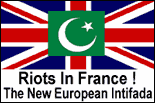|
|
|||||||||||||||||||||||||||||||||||||||||||||||||
|
The accused challenged the whole legal process in his case and said that the investigation against him was illegal. He said that according to the law, a police officer below the rank of superintendent of police (SP) could not conduct investigation in a blasphemy case, but a sub-inspector (SI) had conducted the investigation in This case, which made the whole process illegal. He requested that the case against him be quashed. During the proceedings, the accused was sitting in a special room at Kot Lakhpat Jail and the judge sat in a room at the Sessions Court where he recorded the evidence. The accused was seen in the court on a screen. This was the first video trial in a blasphemy case in the country. Defence counsel Pervez Aslam Chaudhry said the trial had been arranged at the jail due to security issues, adding that all evidence in the case were also recorded through video. The lawyer of the accused said that Christians had arranged a spiritual gathering at Chungi Ammarsidhu in September 9, 2005, at which a neighbour, Abdul Aziz, also a complainant in the case, had objected and demanded that they perform Islamic rituals instead of Christian rites. The argument turned hot during which, the complainant alleged that the accused had used the derogatory remarks. The lawyer said that the case had not been investigated at the proper forum. He contended that the offence required investigation by an officer not below the rank of SP under section 156-A of the Criminal Procedure Code. Chaudhry said he would appeal against the decision. The court also directed the police to provide security to the lawyer because he had been receiving threats during the trial. This barbaric custom is being practised in the UK now, thanks to Muslim immigration, but the media refuse to talk about it. http://www.memritv.org/Transcript.asp?P1=1467 Following are excerpts from a television program about female circumcision in Egypt, which aired on Al-Mihwar TV on May 10, 2007: Presenter in studio: Many women fail to please their husbands because their families circumcised them when they were girls. Female circumcision still takes place, not only in the villages. For our show today, we talked with people from all levels of society. We went to clubs, to common places, and to the villages. Female circumcision exists everywhere. It exists in all strata of society, as well as in our minds and our tradition. In my opinion, female circumcision is a very barbaric act. It is barbaric because by performing it, we eliminate the woman's sensation during [sex]. Let's see, first of all, what people think in simple villages. Why do you circumcise your girls? How come, after all that's been said in the media, and after doctors and religious scholars have met with you, you still insist upon circumcising your girls? A poll of rural Egyptian village residents: Interviewer: In the Islamic religion, and in the villages and neighborhoods, it is always said that girls should be circumcised just like boys. Does it come from the Sunna, or is it a custom or yours? Female villager: Circumcision is part of the Sunna of the Prophet. We used to bring a daya, and she would circumcise the children, but when the role of the daya was abolished, we stopped. Now we take our children to the doctor, and he circumcises them. Interviewer: So it is the doctor who circumcises the girl? Female villager: Yes. If a girl is not circumcised, she can't stand it. When she is circumcised, she is calm and has self-restraint. The circumcision protects the girl and makes her clam. Interviewer: So you think all women should be circumcised to protect their honor. Female villager: The Prophet said that the men go and wage Jihad for a year. He said that girls should be circumcised so they can bear it for a whole year until the men return. Interviewer: What is your son called? Another villager: His name is Amru. Interviewer: If you had a girl, you would circumcise her too? Villager: Yes. Interviewer: You are all circumcised? Villager: Yes. Interviewer: Many people have appeared in the media, on TV, and have said that circumcision harms the girls. What do you think? Villager: It doesn't do us any harm. We are used to it... Interviewer: And it does not cause the woman any problems? Villager: Not doing it is not normal. Interviewer: If you had a girl, you would circumcise her... Villager: I have a girl, and Allah willing, when she grows, I will circumcise her. Interviewer: Don't you think that this is cruel to the girl, and that when she grows up and begins to understand, this will hurt her? Villager: We all go through this. From the day we are born, we know this is ahead of us. Interviewer: Don't you think that when such a thing happens to a girl, it affects her, and that when she grows up, she will think this was a bit cruel? Villager: No. Interviewer: So it's normal... Villager: It's normal for us. Besides, now with modern medicine, we take her to the doctor, and she doesn't fell a thing. Interviewer: What doctor? In a hospital? Villager: In a hospital, in a private clinic... A specialist doctor. Interviewer: Is this circumcision expensive? Villager: No, it's not. 50 Egyptian pounds for a boy, and 100 pounds for a girl. Interviewer: Is female circumcision a regular thing for you people? Villager: Yes. Interviewer: Aren't there people who refrain from circumcising [their girls]? Villager: No, all women are circumcised. Interviewer: So it's a must... Villager: Yes. Interviewer: It has been said that circumcision is harmful to the girl's health. Villager: We have never prevented it, because a girl must be circumcised. She must. It doesn't affect her at all. It would affect her if she didn't. But this way, the girl becomes smart and calm, and then she grows tall and beautiful. Interviewer: If she's circumcised, she grows tall and beautiful? Villager: Yes. Interviewer: Why do you all believe in female circumcision? Another villager: Because we are all brought up this way. Interviewer: Have you circumcised your girls? Villager: I have four girls, and I circumcised them all. Interviewer: Did you do it yourself or did you go to a doctor? Villager: No, a daya did it. Interviewer: It's not done by some friend of the mother or someone like that? Villager: No, it is someone who is known in the village. Interviewer: Is she still around? Villager: Yes. Interviewer: And she still performs circumcisions? Villager: Yes. Interviewer: How much does it cost? Villager: She takes you give her... 10 Egyptian pounds... You pay whatever you can afford. Interviewer: Doesn't it hurt the girl who is being circumcised? Villager: No. She performs the circumcision, and the girl sits in warm water, and everything is fine. Interviewer: The girl doesn't scream and cry? Villager: She does, but we hold her down and the woman cuts it. Interviewer: When you hold her down, doesn't it affect her psychologically? Villager: It does, but then she calms down. Interviewer: Don't you think she remembers this when she grows up? Villager: No, that's it. She will be happy about it. Villager sheik: They are used to this custom in the rural areas. But this is wrong. This custom is wrong. Interviewer: You are not advising... Sheik: I say not to do it, but they say: Our mothers did it and our grandmother did it. Interviewer: Wasn't your daughter circumcised? Sheik: She was. Here's my wife. She circumcised her behind my back. Interviewer: Behind your back? Sheik: Yes. Interviewer: In these villages, a woman can do something behind her husband's back? Sheik: In the villages, the women are the men. Interviewer: Sheik, how can you say such a thing? Is it possible that she would circumcise your daughter behind your back? Sheik: We are simple people, and nobody says: I am the man, and that's it... Interviewer: You would not want to have your granddaughter circumcised? Sheik: No, I wouldn't, because I want her to enjoy her husband, and her husband to enjoy her. Sheik's wife: You gave birth to 21 children? Interviewer: Did you really circumcise your girl behind your husband's back? Sheik's wife: I circumcised four girls. Interviewer: Behind your husband's back? Sheik's wife: Yes. Interviewer: Why? Sheik's wife: Otherwise, when they go to college, the girls will cause scandals and get married. Those who do it... Interviewer: What's the problem if they get married? Sheik's wife: What, to get married behind my back? Interviewer: Ah, you meant unofficial marriages? Sheik's wife: yes, they get married unofficially, and then we hear awful things about them. Interviewer: And circumcision is the solution? Sheik's wife: Yes. Otherwise, it drives her crazy, and she gets married behind her mother and father's back. So we circumcise them. Woman: We are all circumcised here. I don't know why you are dealing with the subject of female circumcision. Interviewer: Why do you think people circumcise their girls? Woman: For the sake of purity and modesty... So that when the girls grow up, they won't do awful things, but basically, it goes back to education. Interviewer: Do you think if they are circumcised, they won't do awful things? Woman: They will anyway. Many girls who are circumcised still do awful things. Interviewer: So why do we need it? Woman: That's not the reason. We believe it protects the girls. Interviewer: Do you arrange a celebration like with boys? Woman: No, but we are happy, and we them something new to wear. Interviewer: Tell me, when the girl grows up, won't she remember this... Woman: She will remember, but... Some people are happy about it, and some aren't. Interviewer: Do you remember yours? Woman: I was too small to remember. Interviewer: Some say female circumcision causes marital problems. What do you think? Woman: Yes, it's true. Interviewer: Do you believe in female circumcision? Woman: When I was young, it happened to me. Interviewer: It didn't affect your marital life at all? Woman: No, but I've heard many people say it affects them. There are problems because of female circumcision. Interviewer: Does it lead to divorce? Woman:Sometimes. Interviewer: Do you believe in female circumcision? Woman: Yes, of course. Interviewer: Why? Woman: First of all, it is our custom. I'm not talking about circumcision the way it used to be. That kind of circumcision was wrong. Interviewer: Why? Woman: It was not done properly. The proper thing to do is to go to a doctor, and the doctor determines whether the girls needs it or not. The doctor knows exactly what he is doing, but... Interviewer: So if the doctor told you your daughter didn't need it – that would be it? Woman: Yes. Interviewer: You wouldn't have her circumcised? Woman: If the doctor told me she didn't need it, that would be it. http://www.nisnews.nl/public/300507_2.htm A Moroccan man who was opposing the Moroccan state intervention with the names given to children born in the Netherlands has halted his campaign. The many threats he received were too much for him, newspaper De Volkskrant reported yesterday. In registering a newly-born baby, Moroccan parents have a list stuck under their nose by Dutch municipalities out of which they have to choose a name. This official list distributed by the Moroccan government contains only Arabic names. This is discriminatory and violates freedom of choice, according to Moussa Aynan. Dutch municipalities are thereby an outpost of the Moroccan government, De Volkskrant quoted him as saying. The 34 year old Aynan, who has just become a father himself, is a Labour (PvdA) council member in Haarlem. Hundreds of angry and threatening reactions have reportedly come in on his website in the past weeks from the Netherlands and abroad. So many that he has now decided to remove his weblog from the air. ‘It became too much, my wife particularly became afraid,’ said Aynan in the newspaper. Aynan: ‘Islamic names do not exist. Muslims from Indonesia or India also have names that are not on the list. This list is Arab-nationalistic.’ He regrets that his initiative has been ‘hijacked by both Christian fundamentalists as Islamic fanatics.’ http://www.nysun.com/article/55439 In another sign of the spread of Islam within Europe, last month, Swiss Muslims announced their plan to open ‘ Europe's biggest Islamic centre’ in the capital city of Bern. The centre is estimated to cover 84 acres and to cost as much as $66 million to build. Switzerland seems to be an unlikely locus for a battle over jihadist Islamism, but according to reports, its Muslim citizens, who make up about 5% of the total population, increasingly look to radical Middle East clerics for spiritual guidance. The country is also home to a controversial professor, Tariq Ramadan, whose visa to come to America was revoked by the State Department, and reports indicate there has been a rising tension between Muslims and non-Muslims there. In what could be considered pouring fuel on a fire, two weeks ago, the League of Swiss Muslims invited Sheik Salman bin Fahd Al-Odah of Saudi Arabia to participate in their annual conference. Hailing from a wealthy Saudi family, Mr. Odah is a noted Islamic scholar who has a wide following among Islamists throughout the world. He was enraged when American troops were based in Saudi Arabia during the first Gulf War and has gone on record supporting jihad against American troops in Iraq. His stance on the American presence in Saudi Arabia earned him five years in jail there for speaking out against the government — a sentence condemned in Osama bin Laden's infamous 1996 fatwa against the West. According to reports, copies of Mr. Odah's sermons have been found in an abandoned Afghanistan home belonging to Mr. bin Laden. When Al Qaeda in Saudi Arabia released the first issue of its online magazine, ‘The Voice of Jihad,’ in 2003, it included a biography of Sheik Yousef Al-Ayyiri, a Saudi Al Qaeda leader who served as Mr. bin Laden's personal bodyguard in Afghanistan and later in Sudan. Upon Mr. Ayyir's return to Saudi Arabia, that issue of ‘The Voice of Jihad’ quotes Mr. Al- Odah as telling Mr. Ayyiri, ‘I am proud to be one of the soldiers of Abu Abdallah,’ Mr. bin Laden's nom de jihad. A few weeks ago, as Mr. Odah was about to leave for Switzerland, Swiss authorities informed him he had been barred from entering Switzerland by a ruling of the Federal Police Department of the Swiss Ministry of Justice. Accusing ‘extremist Zionist forces’ of being behind the ban, Mr. Odah said he is considering a lawsuit and says that American and German lawyers have agreed to take the case. According to a London Arabic daily, Al-Asharq Al-Awsat, Mr. Odah ‘was subjected to a similar incident in Spain, where Spanish authorities accused him of financing one of the criminals in the Madrid train bombings.’ Publications such as El Mundo in Spain and Corriere della Sera in Italy have alleged that Madrid bomber Rabei Osman Ahmed was a follower of Mr. Odah. In the past year, Mr. Odah has made a number of negative headlines in the West. He attacked Pope Benedict's statements about Islam. The Baltimore Sun reported on January 8 that Mr. Odah was ‘a regular visitor to Sudan and a strong supporter of the Janjaweed's campaign against the people of Darfur.’ The Baltimore Sun article also accused him of ‘funding the Islamic Courts Union’ in Somalia, a political group that has tried to turn Somalia into a Wahhabist-style state, and reported that Mr. Odah had ‘called upon Saudis to go to Somalia to aid the jihad’ there during a December 27 interview on Al-Jazeera television. It is however a troubling sign that such Muslim leaders have become religious and spiritual guides to mainstream Muslims in the West. Switzerland's banning Mr. Odah follows decisions in other Western countries to close their borders to influential Muslim religious figures who often espouse anti-Western and pro-jihad sentiment. Notable examples include America's denial of entry to a leading Egyptian Islamist sheik, Yusef Al-Qaradawi, a spiritual leader of the Muslim Brotherhood, and Canada's barring the imam of Islam's holiest mosque in Mecca, Abdul Rahman Al-Sudais, for his anti-Semitic and anti-Christian statements and calls for jihad. This practice should continue and be adopted by all Western countries. Mr. Stalinsky is the executive director of the Middle East Media Research Institute. http://www.infoisrael.net/cgi-local/text.pl?source=4/b/viii/130620071 In this article the increasing Muslim population in Europe and its effects are considered. Pipes points to the rising Muslim population, higher birth rate among Muslims as compared to other Europeans, greater commitment to religion on the part of Muslims and a Muslim culture that rejects assimilation into larger European countries as factors that might very well lead to ‘Islamic takeover’ in Europe. Pipes considers these population trends in the context of attempting to determine what Europe's long-term relationship with its Muslim population will look like. He briefly considers the unlikelihood of harmonious integration because of Muslim disdain for many cultural aspects of western culture; he also dismisses the likelihood of an organized expulsion of Muslims from European countries which leads him to predict that Islamic takeover is likely. Europe's long-term relations with its burgeoning Muslim minority, the continent's most critical issue, will follow one of three paths: harmonious integration, the expulsion of Muslims, or an Islamic takeover. Which of these scenarios will most likely play out? Europe's future has vast importance not just for its residents. During a half-millennium, 1450-1950, this 7 percent of the world's landmass drove world history; its creativity and vigour invented modernity. The region may have already lost that critical position sixty years ago, but it remains vitally important in economic, political, and intellectual terms. Which direction it goes in, therefore, has huge implications for the rest of humanity, and especially for its daughter countries, such as the United States, which historically have looked to Europe as a source of ideas, people, and goods. Here is an assessment about the likelihood of each scenario. I. Muslims Rule The late Oriana Fallaci observed that, with the passage of time, ‘Europe becomes more and more a province of Islam, a colony of Islam.’ The historian Bat Ye'or has dubbed this colony ‘Eurabia.’ Walter Laqueur predicts in his forthcoming Last Days of Europe that Europe as we know it is bound to change. America Alone: The End of the World as We Know It, goes further and argues that much of the Western world ‘will not survive the twenty-first century, and much of it will effectively disappear within our lifetimes, including many if not most European countries.’ Three factors – faith, demography, and a sense of heritage – argue for Europe being Islamized. Faith: An extreme secularism predominates in Europe, especially among its elites, to the point that believing Christians (such as George W. Bush) are seen as mentally unbalanced and unfit for public office. In 2005, Rocco Buttiliglione, a distinguished Italian politician and Catholic believer, was denied a position as Italy's European Union commissioner because of his views on such issues as homosexuality. Entrenched secularism also means empty churches: in London, researchers estimate, more Muslims attend mosques on Friday than do Christians churches on Sunday, although the city is home to roughly 7 times more born-Christians than born-Muslims. As Christianity fades, Islam beckons; Prince Charles exemplifies the fascination of many Europeans with Islam. Many conversions could be in Europe's future, for as the saying is ascribed to G.K. Chesterton, ‘When men stop believing in God they don't believe in nothing; they believe in anything.’ Europe's secularism shapes its discourse in ways quite unfamiliar to Americans. Hugh Fitzgerald, formerly vice president of JihadWatch.org, illustrates one dimension of this difference: The most memorable utterances of American presidents have almost always included recognizable Biblical phrases. ... This source of rhetorical strength was on display this past February [2003] when the Columbia shuttle blew up. Had it not been an American but a French shuttle that had blown up, and were Jacques Chirac having to give such a speech, he might well have used the fact that there were seven astronauts, and evoked an image of the Pleiades first named in pagan antiquity. The American President, at a solemn national ceremony that began and ended with Biblical Hebrew, did things differently. He took his text from Isaiah 40:26, which led to a seamless transition from mingled wonder and awe at the heavenly hosts brought forth by the Creator, to consolation for the earthly loss of the crew. The buoyant faith of Muslims, with its attendant jihadi sensibility and Islamic supremacism, could not differ more from that of lapsed European Christians. This contrast leads many Muslims to see Europe as a continent ripe for conversion and domination. Outrageous supremacist claims result, such as the statement of Omar Bakri Mohammed, ‘I want Britain to become an Islamic state. I want to see the flag of Islam raised in 10 Downing Street.’ Or the prediction of a Belgium-based imam: ‘Soon we will take power in this country. Those who criticize us now, will regret it. They will have to serve us. Prepare, for the hour is near.’[1] Population: Demographic collapse also points to Europe being Islamized. The total fertility rate in Europe today averages about 1.4 per woman, whereas sustaining one's population requires just over two children per couple, or 2.1 children per woman. The existing rate is just two-thirds of what it needs to be; one-third of the requisite population is simply not being born. To avoid a severe diminution of population, with all the woes that implies – and specifically, an absence of workers to fund generous pension plans – Europe needs immigrants – lots of them. That imported third of the population tends to be Muslim, in part because Muslims are close by – it's only thirteen kilometers from Morocco to Spain, only a couple of hundred to Italy from Albania or Libya; in part because colonial ties continue to bind South Asia to Britain or the Maghrib to France; and in part because of the violence, tyranny, and poverty so prevalent in the Muslim world today, which prompts wave after wave of emigration. Likewise, the high fertility of Muslims complements the paucity of children among indigenous Christians. Although the Muslim fertility rate is falling, it remains significantly higher than that of Europe's indigenous population. No doubt, the high birth rates have something to do with the premodern circumstances in which many Muslim women of Europe find themselves. In Brussels, ‘Muhammad’ has for some years been the most popular name given to infant boys, while Amsterdam and Rotterdam are on track to be, by about 2015, the first major European cities with majority Muslim populations. The French analyst Michel Gurfinkiel estimates an ethnic street war in France would find the children of indigines and of immigrants in a roughly one-to-one ratio. Current predictions see a Muslim majority in Russia's army by 2015 and in the country as a whole by about 2050. Sense of heritage: What often is depicted as Europe's political correctness reflects what I believe is a deeper phenomenon, namely, the alienation of many Europeans from their civilization, a sense that their historic culture is not worth fighting for or even saving. It's striking to note differences within Europe in this regard. Perhaps the country least prone to this alienation is France, where traditional nationalism still holds sway and the French take pride in their identity. Britain is the most alienated country, as symbolized by the plaintive government program, ‘ICONS - A Portrait of England,’ that lamely hopes to rekindle patriotism by connecting Britons to their ‘national treasures,’ such as Winnie-the-Pooh and the miniskirt. This diffidence has had direct and adverse implications for Muslim immigrants, as Aatish Taseer explained in Prospect magazine. Britishness is the most nominal aspect of identity to many young British Pakistanis. ... If you denigrate your own culture you face the risk of your newer arrivals looking for one elsewhere. So far afield in this case, that for many second-generation British Pakistanis, the desert culture of the Arabs held more appeal than either British or subcontinental culture. Three times removed from a durable sense of identity, the energized extra-national worldview of radical Islam became one available identity for second-generation Pakistanis. Immigrant Muslims widely disdain Western civilization, and especially its sexuality (pornography, divorce, homosexuality). Nowhere in Europe are Muslims being assimilated, rarely does intermarriage take place. Here is one colorful example, from Canada: The mother of the notorious Khadr brood, known as the country's first family of terrorism, returned to Canada from Afghanistan and Pakistan in April 2004 with one of her sons. Despite her seeking refuge in Canada, she publicly insisted just a month earlier that Al-Qaida-sponsored training camps were the best place for her children. ‘Would you like me to raise my child in Canada to be, by the time he's 12 or 13 years old, to be on drugs or having some homosexual relationship? Is it better?’ (Ironically, in centuries past, as the historian Norman Daniel has documented, Christian Europeans looked down at Muslims with their multiple wives and harems as overly-sexualized, and therefore felt morally superior.) To sum up: this first argument holds that Europe will be Islamized, quietly submitting to the dhimmi status or converting to Islam, because the yin of Europe and yang of Muslims fit so well: low and high religiosity, low and high fertility, low and high cultural confidence.[2] Europe is an open door through which Muslims are walking. II. Muslims Rejected Or will the door be shut in their face? American columnist Ralph Peters dismisses the first scenario: ‘Far from enjoying the prospect of taking over Europe by having babies, Europe's Muslims are living on borrowed time. ... predictions of a Muslim takeover of Europe ... ignore history and Europe's ineradicable viciousness.’ Instead, depicting Europe as the place ‘that perfected genocide and ethnic cleansing,’ he predicts its Muslims ‘will be lucky just to be deported,’ and not killed. Claire Berlinski, in Menace in Europe: Why the Continent's Crisis Is America's, Too, implicitly agrees, pointing to the ‘ancient conflicts and patterns ... now shambling out of the mists of European history’ which could well trigger violence. This scenario has indigenous Europeans – who do still constitute 95 percent of the continent's population – waking up one day and asserting themselves. ‘Basta!’ they will say, and reclaim their historic order. This is not so remote; a chafing among Europeans, less among elites than the masses, loudly protests changes already underway. Illustrations of that resentment include the anti-hijab legislation in France, irritation over the restrictions of national flags and Christian symbols, and the insistence on serving wine at state dinners. A movement spontaneously developed in several French cities in early 2006 to serve pork soup to the poor, thus intentionally excluding Muslims. These are minor issues, to be sure, but insurgent anti-immigrant parties have already emerged in many countries and are beginning to demand not just effective control of borders but the expulsion of illegal immigrants. A nativist movement throughout Europe is forming largely unnoticed beneath our eyes. However meager its record so far, it has huge potential. Parties opposed to immigration and Islam generally have neo-fascist backgrounds but are growing more respectable over time, shedding their antisemitic origins and their dubious economic theories, focusing instead on the questions of faith, demography, and identity, and learning about Islam and Muslims. The British National Party and Belgium's Vlaamse Belang offer two examples of such a move toward respectability, which may one day be followed by electability. The presidential race in France in 2002 came down to a contest between Jacques Chirac and the neo-fascist Jean-Marie Le Pen. Other parties have already tasted power. J?rg Haider and the Freiheits Partei ?sterreich were briefly in office. The Lega Nord in Italy was for years part of the ruling coalition. They will likely grow stronger because their anti-Islamist and often anti-Islamic messages resonate, and mainstream parties will partially adopt their messages. (Denmark's Conservative Party offers a model; after 72 years in the wilderness, it returned to power in 2001 due basically to anger concerning immigration.) These parties will likely benefit when immigration to Europe surges uncontrollably to ever-higher levels, including perhaps a mass exodus from Africa, as many indications suggest will happen. Once in power, nationalist parties will reject multiculturalism and try to re-establish traditional values and mores. One can only speculate about their means and about the Muslim reaction. Peters dwells on the fascistic and violent aspects of some groups and expects an anti-Muslim backlash to take ominous forms. He even sketches a scenario in which ‘U.S. Navy ships are at anchor and U.S. Marines have gone ashore at Brest, Bremerhaven or Bari to guarantee the safe evacuation of Europe's Muslims.’ For years, Muslims have worried about just such incarceration and brutalization, followed by expulsion or even massacres. Already in the late 1980s, the late Kalim Siddiqui, director of London's Muslim Institute, raised the specter of ‘Hitler-style gas chambers for Muslims.’ Shabbir Akhtar warned in his 1989 book, Be Careful With Muhammad that ‘the next time there are gas chambers in Europe, there is no doubt concerning who'll be inside them,’ meaning Muslims. A character in Hanif Kureishi's 1991 novel, The Buddha of Suburbia, prepares the guerilla war that he expects will follow after ‘the whites finally turned on the blacks and Asians and tried to force us into gas chambers.’ But it is more likely that European efforts at reclamation will be initiated peaceably and legally, with Muslims – in keeping with recent patterns of intimidation and terrorism – being the ones to initiate violence. Multiple polls confirm that about 5 percent of British Muslims endorse the 7/7 bombings, suggesting a general readiness to resort to force. However it happens, a European reassertion cannot be assumed to take place cooperatively. III. Muslims Integrated In the happiest scenario, autochthonous Europeans and Muslim immigrants find a modus Vivendi and live together harmoniously. Perhaps the classic statement of this optimistic expectation was a 1991 study, La France, une chance pour l'Islam (‘France, an Opportunity for Islam’) by Jeanne-H?l?ne and Pierre Patrick Kaltenbach. ‘For the first time in history,’ they wrote, ‘Islam is offered the chance to waken in a democratic, rich, laic, and peaceable country.’ That hopefulness lives on. An Economist leader from mid-2006 asserts that ‘for the moment at least, the prospect of Eurabia looks like scaremongering.’ Also at that time, Jocelyne Cesari, associate professor of Islamic studies at the Harvard Divinity School, claimed a balance exists: just as ‘Islam is changing Europe,’ she said, ‘Europe is changing Islam.’ She finds that ‘Muslims in Europe do not want to change the nature of European states’ and expects them to adapt themselves into the European context. Such optimism, unfortunately, has little foundation. Europeans could yet rediscover their Christian faith, have more babies, and cherish their own heritage. They could encourage non-Muslim immigration or acculturate the Muslims already among them. But such changes are not now underway, nor are their prospects good. Instead, Muslims are cultivating grievances and ambitions at odds with their indigenous neighbors. Worryingly, each generation appears more alienated than its predecessor. Canadian novelist Hugh MacLennan dubbed his country's English-French split the ‘Two Solitudes’; one sees something similar, but far more pronounced, developing in Europe. Those polls of British Muslims for example, find that a majority of them perceive a conflict between their British and Muslim identities and want Islamic law instituted. The possibility of Muslims accepting the confines of historic Europe and smoothly integrating within it can virtually be dismissed from consideration. Even Bassam Tibi, professor at the University of G?ttingen, who has often warned that ‘Either Islam gets Europeanized, or Europe gets Islamized,’ has personally given up on the continent. Recently, he announced that he is leaving Germany after 44 years' residence there, to move to Cornell University in the United States. Conclusion As the American columnist Dennis Prager sums them up, ‘It is difficult to imagine any other future scenario for Western Europe than its becoming Islamicized or having a civil war.’ Indeed, these two deeply unattractive alternative paths appear to define Europe's choices, with powerful forces pulling in the contrary directions of Muslims taking over or Muslims rejected, Europe an extension of North Africa or in a state of quasi-civil war. Which will it be? The decisive events that will resolve this question have yet to take place, so one cannot yet make the call. Decision-time is fast approaching, however. Within the next decade or so, today's flux will end, the Europe-Islam equation will harden, and the continent's future course should become apparent. Correctly anticipating that course is the more difficult for being historically unprecedented. No large territory has ever shifted from one civilization to another by virtue of a collapsed population, faith, and identity; nor has a people risen on so grand a scale to reclaim its patrimony. The novelty and magnitude of Europe's predicament make it difficult to understand, tempting to overlook, and nearly impossible to predict. Europe marches us all into terra incognita. Notes: [1] De Morgen, Oct. 5, 1994. Cited in Koenraad Elst, ‘The Rushdie Rules’, Middle East Quarterly, June 1998. [2] It's striking to note that in these three way, Europe and the United States were much more similar 25 years ago than today. This suggests that their bifurcation results less from historical patterns going back centuries and more from developments in the 1960s. However deeply that decade affected the United States, it had a far deeper impact on Europe. Mr. Pipes is director of the Middle East Forum and visiting professor
at Pepperdine University. This article is adapted from a talk for a
Woodrow Wilson Centre conference on ‘Euro-Islam: The
Dynamics of Effective Integration.’ |
























